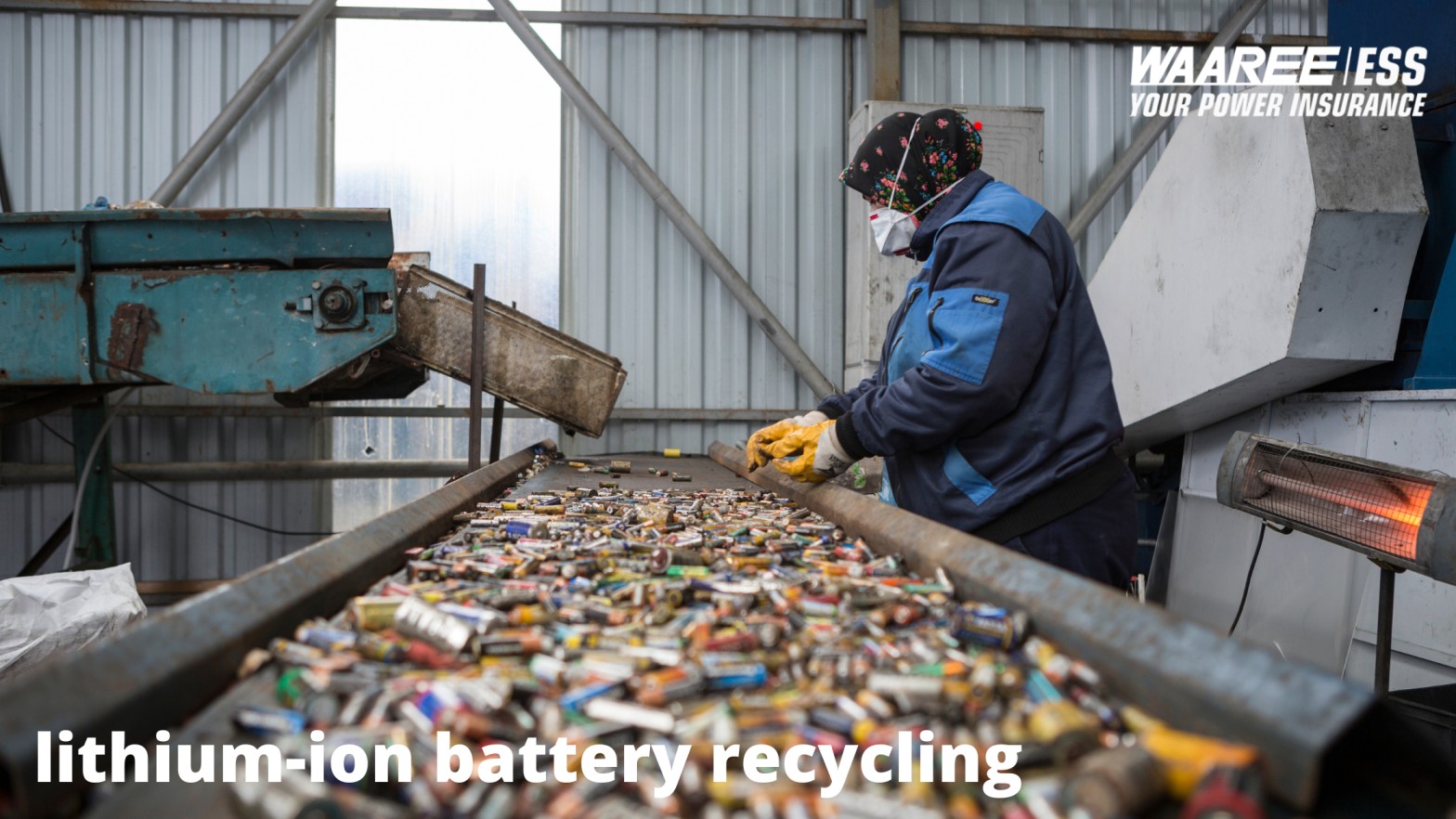The need for conservation of energy and the clean energy revolution has ignited the flames of Electric vehicles. EVs are gaining popularity due to their features and performance. But think about the amount of lithium-ion(Li-ion) batteries required to power EVs. It is estimated that energy storage for the next decade is about to grow. Currently, the size of the global lithium-ion market is 46.4 billion USD.
Is it possible to recycle these batteries because lithium-ion batteries are used in EVs as the only source of power generation? Since solar batteries or electric car batteries are used in large numbers, they will create a high amount of toxic debris that needs careful and costly treatment to decompose.
Hence recycling electric car batteries is a better option as it will provide extra material to the companies for further manufacturing of batteries. This would also lower the cost of batteries.
Although recycling lithium-ion batteries or electric car batteries is a complicated but necessary process since these batteries are produced on a large scale, the recycling process is expensive, and it’s difficult to separate the elements of lithium-ion batteries to be recycled or reused.
Importance of recycling lithium-ion solar and electric vehicle batteries
The two most crucial reasons to consider recycling solar batteries and electric vehicle batteries are the necessity to recover materials and protect the environment. Approximately 5% of total lithium-ion batteries are recycled around the globe. The statistics of recycling are quite low if compared to the manufacturing of lithium-ion batteries. Successful completion of recycling for solar batteries and electric car batteries allows companies to gain more material for reuse. It is the most efficient process and helps improve the carbon footprint.
- Preserving valuable materials
Recycling solar batteries preserve rare and essential materials which can be reused after certain material treatment. Lithium-ion batteries contain many valuable and useful materials like cobalt, iron, nickel, etc. In which some of the materials are costly to mine and process. Also, these metals are difficult to find, so reclaiming the rare materials to reuse is necessary. Precious metals like cobalt become tough to mine and extract as time goes on further. It requires more money for the process and treatment.
- Recycling batteries to decrease the environmental pollution
Besides the economic benefits of preserving rare materials or battery parts, recycling lithium-ion batteries is always good for decreasing the environmental pollution. Some of the elements present in batteries are toxic and can contaminate the natural environment or even the water supply if the batteries are decomposed in natural water sources.
Moreover, the mining process to extract elements used in batteries is a destructive process for the environment. Mining different materials adversely affects the environment, so it’s better to recycle them as much as possible.
Have you read: Are Lithium-Ion Batteries Compatible With a Sustainable Future?
How to recycle your lithium-ion batteries?
Lithium-ion batteries or electric car batteries are getting famous in the industries or consumer electronics market. While recently, due to their rechargeable qualities, these batteries are becoming a priority in the EV market and preferred as storage options for wind and solar projects. But the most difficult challenge is to develop a technology for the effective recycling of lithium-ion batteries.
Not to forget that lithium-ion batteries are categorized as hazardous waste material due to their toxic chemical composition that makes the recycling process difficult. Furthermore, from an economic view, the obtained resale value of lithium-ion battery components is low if compared to the initial relative costs. Hence the purpose of investing in a recycling process is also low.
Lithium-ion batteries are not like lead-acid batteries lead-acid. Instead, even their counterparts don’t match. At the same time, the current process used for recycling is much more complex. Today almost every lithium-ion battery is recycled through a process called “shredding”. In which the process begins by shredding the battery into very small pieces.
After shredding, a “black mass” is obtained, which needs to be processed to extract essential metals like cobalt and nickel. The black mass typically includes a blend of lithium, manganese, cobalt and nickel present in distinct ratios. This process requires an intensive amount of energy, and it also degrades the value of the extracted components.
Do not hesitate to contact Waaree if you wish to recycle your car batteries!
Read About Are Lithium-ion Batteries “GREENER” than Lead Acid?
Conclusion
Electric vehicles do not emit harmful gases, but they do use lithium-ion batteries made from toxic and hazardous elements. Solar batteries might generate zero-emission and clean energy, but we cannot ignore the fact that solar batteries are made from lithium-ion, which is poisonous. Lithium-ion batteries made from many lithium-ion cells, if dismantled incorrectly, have an inconvenient tendency to explode.
Even though the lithium-ion battery recycling process exists, it is still not that efficient. Manual dismantling of fuel cells results in better recovery of elements from lithium-ion batteries, but there are other health issues and problems related to manual extraction of black mass.
The process is costly, decreasing the value of rare material; hence a more accurate process for recycling lithium-ion batteries is required. Since decomposition of such harmful and toxic electric batteries is more difficult, recycling such batteries is preferable.
To know more about lithium-ion batteries contact Tel. +91-22-6644 4444, Mob. +91-9324942400
Read further: Is There Enough Lithium to Maintain the Growth of the Lithium-Ion Battery Market?



Leave A Comment
You must be logged in to post a comment.